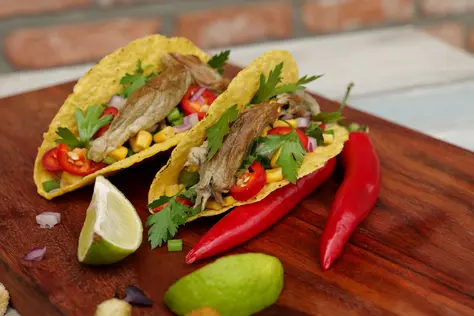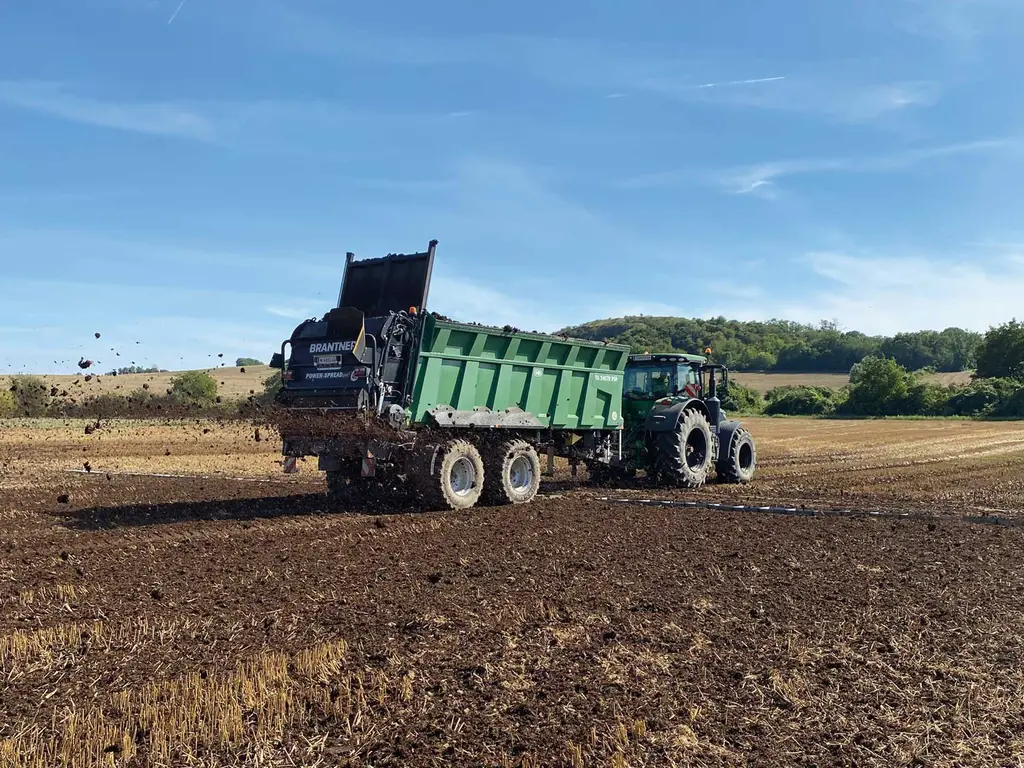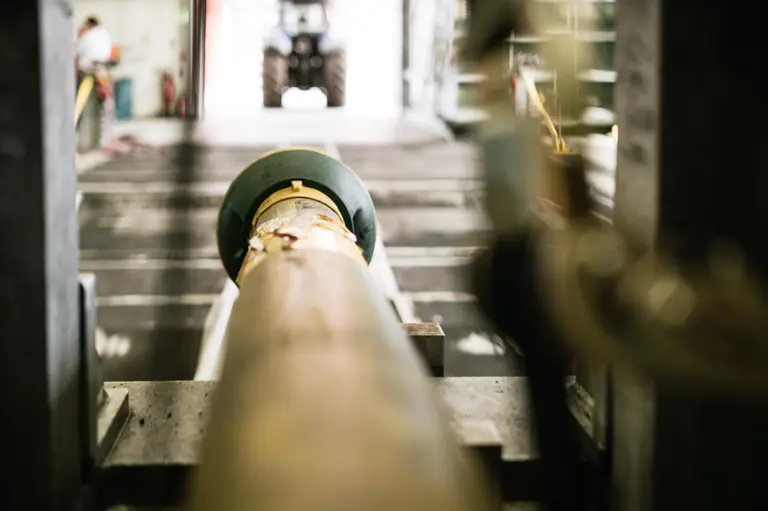International FoodTec Award 2027: Focus on the future of intralogistics
Interview with two experts from the jury of the renowned technology award – Registration until 4 May 2026 at: http://www.foodtecaward.com
How is digitalisation changing logistics in the food industry, and what innovations are needed? Answers are provided by Jennifer Beuth, Head of the Intralogistics and IT Planning Department at Fraunhofer IML in Dortmund, and Prof. Dr. Tone Lerher from the University of Maribor (Slovenia), where he heads two laboratories for material flow systems and cognitive logistics systems. The two logistics experts provide insights into their research, discuss current developments and highlight prospects for the future of the industry. As members of the international expert jury for the International FoodTec Award, which will be presented at Anuga FoodTec in Cologne in 2027, they evaluate technological innovations with a view to practical benefits, efficiency and sustainability. Applications for the prestigious technology award from the DLG (German Agricultural Society) can be submitted until 4 May 2026.
With the International FoodTec Award, the DLG and its partners recognise groundbreaking developments in the areas of innovation, sustainability and efficiency in food technology. How important are innovation awards for your field?
Prof. Lerher: Awards in logistics and intralogistics provide practitioners and academics with new technological and organisational developments, offering solutions that encompass process efficiency, and most often sustainable solutions. Additionally, innovation awards foster collaboration between industry and academia. They create opportunities for joint applied research projects, technology transfer, and finally patents. Thus, innovation awards strengthen the partnership between industry and academia and ensure that research remains relevant to practice. Furthermore, innovation awards can drive standardisation. It is expected that the best technological solutions will gain broader visibility in practice and could become reference points for technical guidelines, norms, and ultimately new standards in the field. Finally, innovation awards contribute to and promote continuous learning, interdisciplinary research, and reinforce the importance of innovation and standardization.
Jennifer Beuth: I totally agree with Prof. Lerher, innovation awards make technical innovations and developments visible. By allowing companies to compare their technologies and learn from the best, i.e., the award-winning innovations, progress within the industry or in the respective technology segment is stimulated. This drives a continuous improvement process, which, particularly at the cross-sector Anuga FoodTec, addresses not only liquid sectors such as beverages and dairy products, but also solid sectors such as meat and baked goods. Communication, particularly via trade fairs, helps to transmit the advantages of the new technologies beyond the industry and into overall society. In this way, we help to reduce consumer inhibitions or reservations on new technologies. As I would like to support the industry in further raising its profile and driving continuous progress, I am delighted to be part of the IFTA jury in 2027.
The German Agricultural Society (DLG) has recently brought the progressive concept of "sustainable productivity improvement" into the discourse. What does this mean for the field of logistics, and specifically for intralogistics?
Prof. Lerher: From an academic perspective, sustainable productivity improvement in logistics and intralogistics refers to efficiency improvements that are technologically feasible, environmentally responsible, and socially acceptable over the long period of time. In intralogistics, this concept includes the design of flexible and energy efficient material handling systems, the implementation of intelligent automation, robotisation and AI solutions, along with the use of digital tools for monitoring and optimisation of intralogistics processes. In our Laboratory for Cognitive Systems in Logistics at the University of Maribor, we have developed a new technological solution in the field of robotic bin picking systems through a national applied research project entitled: "Warehousing 4.0: A Model for the Integration of Warehouse Order Picking and Robotic Systems". The results of our research project have shown that a high degree of automation and robotisation of warehouse and order-picking processes ensures high productivity, quality, and reliability in the implementation of logistics processes. This improves the competitive position of the logistics and production sector, reduces the technological gap, and strengthen the economic power of our region and its educational capacities.
Jennifer Beuth: Sustainability is a very broad field and can be divided into different areas, which we should distinguish when considering intralogistics. Economically sustainable productivity gains in logistics and intralogistics, are in particulary achieved through automation, robotics, and digital networking (IoT, AI). Of course, environmental sustainability must also be taken into account at the same time. However, due to the shortage of skilled workers, social sustainability is also playing an increasingly important role in intralogistics, which must be taken into account more and more in the design and layout of intralogistics systems. Intelligent systems and targeted data collection and analysis support efficiency in all areas improvements through optimized material flow and the efficient use of storage and transport space. At the same time, they relieve the burden on personnel and, through targeted and managed processes in the food sector, contribute to error prevention, thus reducing losses and waste.
We have tested promising solutions in the area of order picking as part of various research projects. One example worth mentioning here is our Picking Lab at Fraunhofer IML. It is used to evaluate order picking technologies and logistics IT systems for warehouse management and focuses on the person-to-goods order picking principle with its procedural workflows. Using realistic scenarios, the lab enables a practical comparison of technologies in a standardized environment. Since picking activities can be carried out using various tools, classically with a pick list and scanner as well as some other digital options, the Picking Lab is designed to facilitate decision-making for companies.
What technologies do you expect to see among the applications or candidates for the Food Technology Innovation Award?
Prof. Lerher: From an academic perspective, future candidates for the FoodTec Award are expected to integrate advanced automation, robotisation, digitalisation, and sustainable technologies that transform food production, processing, and consequently food supply chain. Artificial intelligence and machine learning are expected to play a key role in the future in optimising resource use, predicting demand, and reducing waste across food supply chain. A key factor is the Industrial Internet of Things and sensors monitoring systems, which will improve transparency and traceability throughout the "farm to fork" food supply chain, ensuring food safety and quality for end users. Automation and robotisation will be increasingly implemented in intralogistics (e.g. order-picking, packaging). From a sustainability perspective, bio-based packaging materials, energy efficient processing systems, and circular economy models will represent possible points of innovation.
Jennifer Beuth: Yes of course and therefore we expect all technologies and technological solutions that further advance logistics and intralogistics and specifically relieve or support our specialist staff. These include autonomous mobile robots and smart conveyor systems for efficient goods transport, as well as automated storage and picking systems that optimize warehousing and the order picking process, leading to accelerated order processing. Solutions for digitalization and data intelligence are particularly sought after, as the further networking of machines and systems, digital twins, and process simulations facilitate planning and help with the ongoing testing and optimization of material flows, the reduction of downtime, and the energy management of systems, as well as transport and storage systems. We are excited and look forward to the creative ideas of the engineers and the solutions of the applicants.
For additional information, go to: DLG e.V., Fachzentrum Landwirtschaft & Lebensmittel (Competence Center Agriculture and Food), Bianca Schneider-Häder, Eschborner Landstraße 122, 60489 Frankfurt am Main, Phone +49-(0)69-24788-360, IFTA@DLG.org and online at: https://www.dlg.org/en/food/awards/foodtec-award
Medaille_FoodTecAward_27_Gold_RS_web.jpgMedaille_FoodTecAward_27_Gold_VS_web.jpg
Tone_Lerher.jpg
JBeuth.jpg
PM IFTA_2027_Interview Beuth_Lehrher EN_FINAL.pdf










